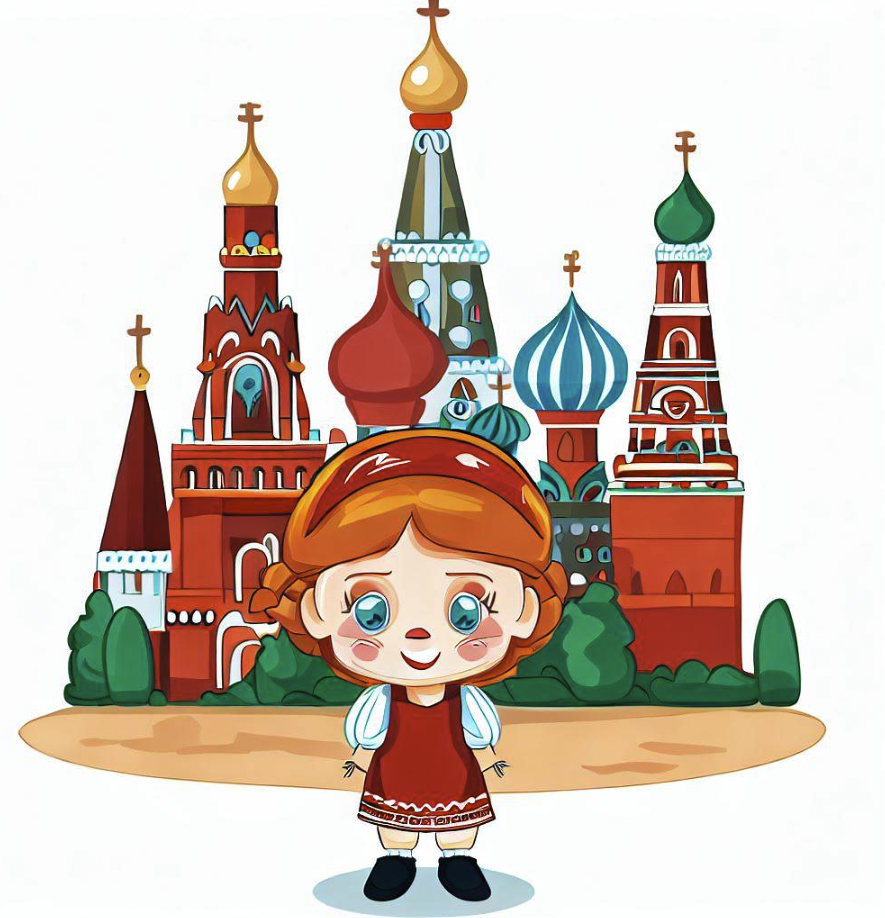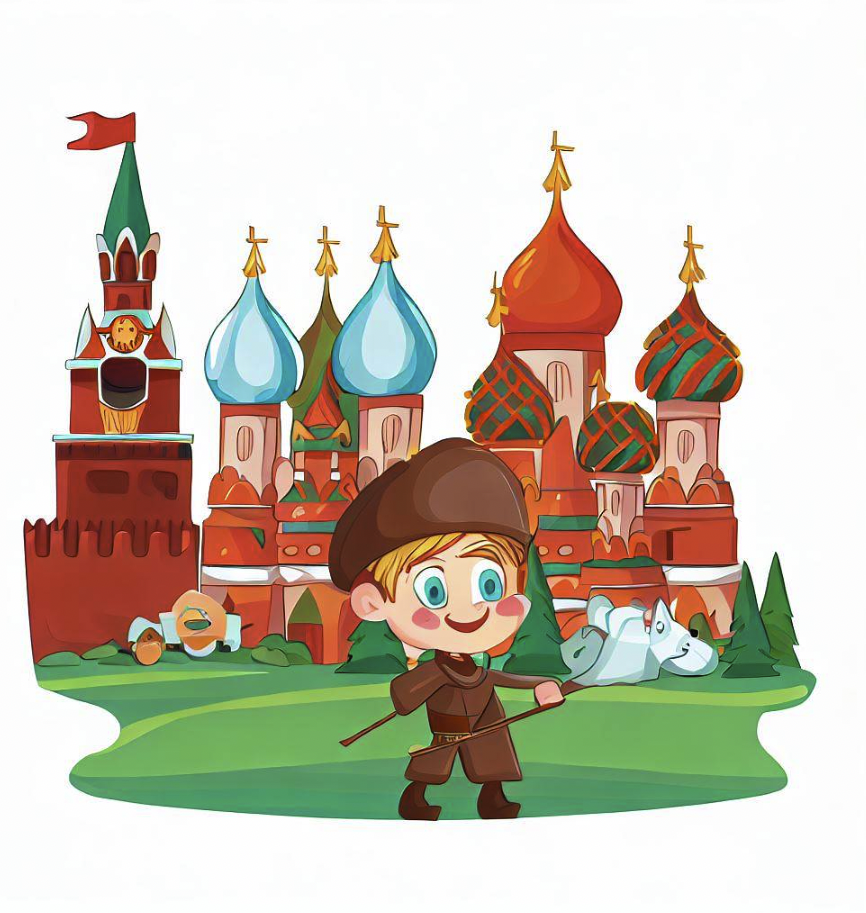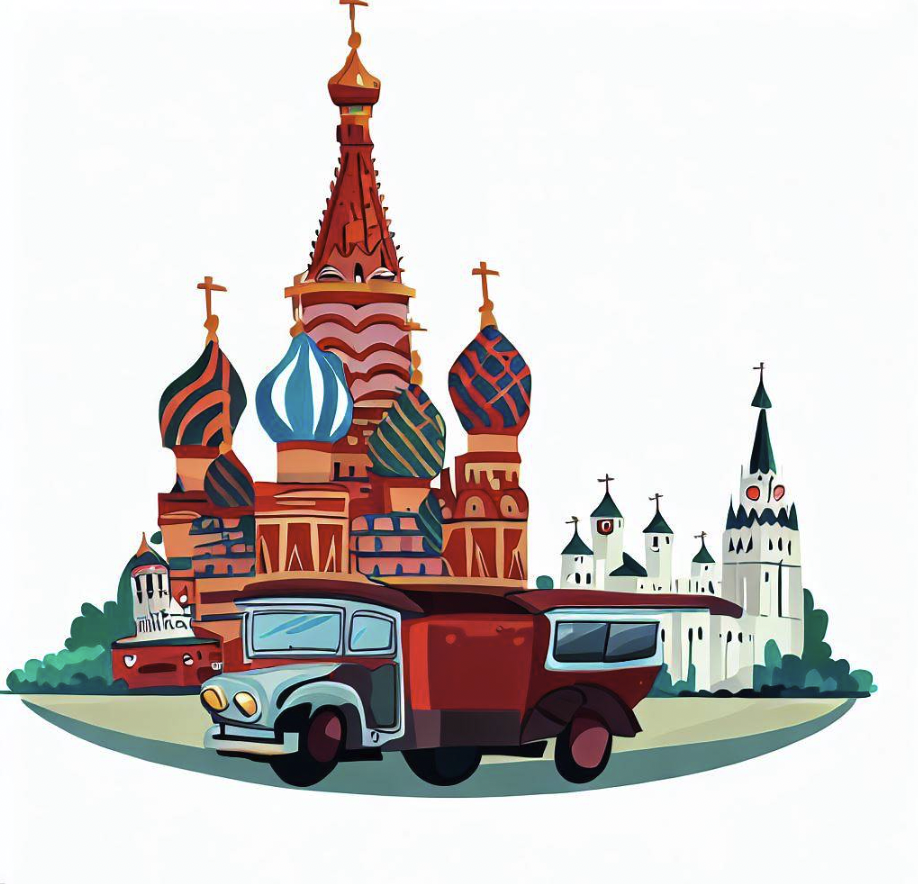Russian proverbs are concise and often poetic expressions of traditional wisdom that reflect the values, beliefs, and experiences of the Russian culture.
Here are some characteristics commonly found in Russian proverbs:
- Conciseness: Russian proverbs are typically short and succinct, conveying a profound meaning in just a few words. They aim to capture the essence of a situation or convey a moral lesson efficiently.
- Metaphorical and Figurative Language: Russian proverbs often employ vivid metaphors and figurative language to create memorable and evocative imagery. These figurative expressions help convey complex ideas or truths in a concise and memorable manner.
- Observations on Human Nature: Many Russian proverbs offer insights into human nature, behavior, and relationships. They reflect the collective wisdom of generations, drawing from observations of human actions and their consequences.
- Emphasis on Morality and Values: Russian proverbs often convey moral teachings and ethical values. They address topics such as honesty, hard work, humility, loyalty, friendship, and the importance of family and community.
- Poetic and Rhythmic Language: Russian proverbs often possess a poetic quality, with an inherent rhythm and musicality. They may contain alliteration, rhymes, or other rhythmic patterns that contribute to their memorability and oral tradition.
- Humor and Satire: Some Russian proverbs exhibit a humorous or satirical tone, employing wit and irony to comment on various aspects of life, society, or human behavior. These proverbs often provoke thought while eliciting a smile or laughter.
- Cultural and Historical Context: Russian proverbs are rooted in the country’s rich history and cultural heritage. They reflect the experiences, values, and worldview of the Russian people, encompassing their traditions, folklore, and social dynamics.
- Practical Wisdom: Russian proverbs offer practical advice and guidance for navigating life’s challenges. They serve as nuggets of wisdom that can be applied to various situations, providing guidance on decision-making, problem-solving, and interpersonal relationships.
- Oral Tradition and Transmission: Russian proverbs have been passed down through generations via oral tradition. They were shared and disseminated within communities, embodying the collective wisdom of the people.
- Variability and Regional Differences: Due to the vast size of Russia and its diverse cultural landscape, there are variations in proverbs across different regions. Certain proverbs may be more prevalent in specific areas, reflecting local customs, dialects, and cultural nuances.
It’s worth noting that while these characteristics capture the essence of Russian proverbs, not all proverbs may exhibit each trait.
Nevertheless, these features contribute to the uniqueness and cultural significance of Russian proverbs.
Russian Proverbs
Here are some Russian proverbs along with their English translations:
- Без труда́ не вы́тащишь и ры́бку из пруда́. English: Without effort, you won’t even catch a fish from a pond.
- Волка́ но́ги кормят. English: The wolf is fed by its legs.
- Не руби́ ве́тку, на кото́рой сиди́шь. English: Don’t cut the branch you’re sitting on.
- Молча́ние – золото́. English: Silence is golden.
- Кто ра́но встаёт, тому́ Бог подаёт. English: God gives to those who rise early.
- Дру́жба дру́жбой, а слу́жба слу́жбой. English: Friendship is one thing, and business is another.
- На вку́с и цвет товари́щей нет. English: There’s no accounting for taste.
- Не все коту́ маслени́ца, а ры́бка – ры́бка. English: It’s not always Shrovetide for the cat, but it is for the fish.
- Говори́шь – не дела́й, дела́ешь – не говори́. English: Don’t talk the talk if you can’t walk the walk.
- По одёжке встреча́ют, по ума́сте провожа́ют. English: They meet you by your appearance, and see you off by your mind.
- Люби́шь кататься, люби и са́ночки вози́ть. English: If you love to ride, then you should love to carry the sled.
- В чужо́м глазу́ сори́нку види́шь, а в своём бревна́ не заме́чаешь. English: You see the mote in someone else’s eye but fail to notice the log in your own.
- Лу́чше поздно́, чем никогда́. English: Better late than never.
- Бро́сь дру́жбу – и родны́х не ищи́. English: Break off a friendship, and you won’t find even your relatives.
- На безры́бье и рак ры́ба. English: In the absence of fish, even a crayfish is a fish.
- Глаза́ боя́тся, а ру́ки дела́ют. English: The eyes are afraid, but the hands are doing.
- Ти́ше едешь, да́льше бу́дешь. English: The quieter you go, the further you’ll get.
- За двумя́ зайца́ми́ погони́шься – ни одного́ не пойма́ешь. English: If you chase two hares, you will not catch either.
- Лу́чше си́ница в ру́ках, чем жура́вль в небе́. English: A sparrow in the hand is better than a crane in the sky.
- Всяк кули́к своё боло́то хва́лит. English: Every sandpiper praises its own swamp.
- Горбато́го моги́ла испра́вит. English: Even a hunchback’s grave will make him straight.
- Кто рано встаёт, тому Бог подаёт. English: God gives to those who rise early.
- Что посе́ешь, то и пожнёшь. English: As you sow, so shall you reap.
- Люби́шь ката́ться, люби́ и са́ночки вози́ть. English: If you love to ride, you should also love to carry the sled.
- Ума́ хвати́ть – и в горшке мед пропа́сть. English: To be smart enough not to fall into a pot of honey.
- Кабы́ зна́л, где упа́сть, так сена́т постели́л бы. English: If I knew where I would fall, I would lay down some straw.
- Завтра́ будет послеза́втра, если́ только не будет вчера́. English: Tomorrow will be the day after tomorrow, unless it becomes yesterday.
- Кто не риску́ет, тот не пьёт шампа́нского. English: Those who don’t take risks, don’t drink champagne.
- С ми́ром по́живешь – и́ миром пропла́чешь. English: If you live peacefully, you’ll cry peacefully.
- Сме́яться – не вре́дно, а немного́ помо́жет. English: Laughing is not harmful; it will even help a little.
- Береги́ пла́тье сно́ва́, а честь с пе́рвого. English: Take care of your dress from the beginning and your honor from the first step.
- За око́шком дождь, а за дверьми́ – де́вочка. English: There’s rain outside the window and a girl outside the door.
- Ле́гко на у́ченого критикова́ть. English: It’s easy to criticize a scholar.
- Что волку боя́ться, если́ в лес не ходи́ть. English: What should the wolf be afraid of if you don’t go into the woods?
- В ти́хом о́муте че́рти во́дятся. English: In a quiet whirlpool, devils dwell.
- Все в порядке́, и я́сно как на ладо́ни. English: Everything is in order, and it’s as clear as the palm of your hand.
- Что посе́ешь, то и пожнёшь. English: As you sow, so shall you reap.
- По одёжке встреча́ют, по ума́сте провожа́ют. English: They meet you by your appearance and see you off by your mind.
- Куй желе́зо, пока́ горя́чо. English: Strike while the iron is hot.
- Ти́ше едешь, да́льше бу́дешь. English: The quieter you go, the further you’ll get.
- Была́ бы шля́па, а та́нцора́м нога́ми. English: If there was a hat, the dancers would use their feet.
- Дело мастера́ боится́. English: The work is afraid of the master.
- Когда́ нет ры́бы и рак ры́ба. English: When there is no fish, a crayfish is a fish.
- Волка́ ноги кормят. English: The wolf is fed by its legs.
- Слово́ не воробе́й, вы́летит – не пойма́ешь. English: A word is not a sparrow; once it flies out, you won’t catch it.
- Куй желе́зо, пока́ горя́чо. English: Strike while the iron is hot.
- Ви́да́ть пару́шку. English: To see through someone’s tricks.
- Не все коту́ маслени́ца, а ры́бка – ры́бка. English: It’s not always Shrovetide for the cat, but it is for the fish.
- Что име́ем – не храни́м, потеря́вши – пла́чем. English: We don’t appreciate what we have until we lose it.
- Поспе́шишь – люде́й насмеши́шь. English: Hurrying will make people laugh.
- Быстро и хорошо́ не быва́ет. English: Fast and good doesn’t happen.
- Вся́к по сво́ей фла́гу танцу́ет. English: Everyone dances to their own flag.
- Лу́чше си́ница в ру́ках, чем жура́вль в небе́. English: A sparrow in the hand is better than a crane in the sky.
- На вку́с и цвет товари́щей нет. English: There’s no accounting for taste.
- Кто ище́т, тот всегда́ находи́т. English: He who seeks, always finds.
- Бе́льше показа́ть, чем объясни́ть. English: It’s better to show than to explain.
- Вода́ ка́мень точи́т. English: Water wears away the stone.
- Волка́ корми́, а он и в лес убе́жит. English: Feed the wolf, and he will run into the forest.
- Молча́ние – золото́. English: Silence is golden.
- Под лежа́чий ка́мень вода́ не те́чет. English: Water does not flow under a lying stone.
These are just a selection of Russian proverbs, each carrying its own wisdom and cultural significance.

Inspirational Russian Proverbs
Inspirational Russian Proverbs:
- Терпение и труд всё перетрут. (Terpeniye i trud vsyo peretrut) – Patience and hard work will grind everything.
- Надежда умирает последней. (Nadezhda umirayet posledney) – Hope dies last.
- Без терпения нет науки. (Bez terpeniya net nauki) – Without patience, there is no learning.
- Кто ищет, тот найдет. (Kto ishchet, tot naydet) – He who seeks will find.
- Сила в единстве. (Sila v edinstve) – Strength lies in unity.
- Маленькими шагами иди, да далеко зайдёшь. (Malen’kimi shagami idi, da daleko zaydyosh) – Take small steps, and you will go far.
- Не говори “гоп”, пока не перепрыгнешь. (Ne govori “gop”, poka ne pereprygnesh) – Don’t say “hop” until you’ve jumped.
- Труд всё перетрут. (Trud vsyo peretrut) – Hard work grinds everything.
- Не знает зима, что грядет весна. (Ne znayet zima, chto gryadet vesna) – Winter doesn’t know that spring is coming.
- С глаз долой — из сердца вон. (S glaz doloy — iz serdtsa von) – Out of sight, out of mind.
Short Russian Proverbs
Short Russian Proverbs:
- Маленькой беде конец. (Malen’koy bede konets) – Every little trouble comes to an end.
- Кто был рождён под счастливой звездой, тот всегда везде везде. (Kto byl rozhdyon pod schastlivoy zvezdoy, tot vsegda vezde vyezde) – Those born under a lucky star are always lucky.
- С чистого листа. (S chistogo lista) – From a clean sheet.
- Без труда не выловишь рыбку из пруда. (Bez truda ne vylovish’ rybku iz pruda) – Without work, you won’t catch a fish from the pond.
- Голод не тётка. (Golod ne tyotka) – Hunger is not a relative.
- Глаза боятся, а руки делают. (Glaza boyatsya, a ruki delayut) – The eyes are afraid, but the hands are doing.
- Нет дыма без огня. (Net dyma bez ognya) – There is no smoke without fire.
- Куй железо, пока горячо. (Kuy zhelezo, poka goryacho) – Strike while the iron is hot.
- На вкус и цвет товарищей нет. (Na vkus i tsvet tovarishchey net) – There is no accounting for tastes.
- Утро вечера мудренее. (Utro vechera mudrenee) – The morning is wiser than the evening.

Funny Russian Proverbs
Funny Russian Proverbs:
- Устал – сядь, уснул – ляг. (Ustal – syad’, usnul – lyag) – If you’re tired, sit down; if you fall asleep, lie down.
- Пошёл на работу, а упал в деньги. (Poshyol na rabotu, a upal v den’gi) – Went to work but stumbled into money.
- Друг познаётся в беде и на черном мерседесе. (Drug poznayotsya v bede i na chernom mercedesye) – A friend is recognized in times of trouble and in a black Mercedes.
- Хорошо там, где нас нет. (Khorosho tam, gde nas net) – It’s good where we are not.
- Жизнь прожить – не поле перейти. (Zhizn’ prozhit – ne pole pereyti) – Living life is not like crossing a field.
- Кто рано встаёт, тому бог подает. (Kto rano vstaet, tomu bog podayet) – Whoever wakes up early, God gives them something.
- Хорошая рыбка – плохому коту. (Khoroshaya rybka – plokhomu kotu) – A good fish for a bad cat.
- Лучше синица в руках, чем журавль в небе. (Luchshe sinitsa v rukakh, chem zhuravl’ v nebe) – Better a sparrow in the hand than a crane in the sky.
- В гостях хорошо, а дома лучше. (V gostyakh khorosho, a doma luchshe) – It’s good to be a guest, but it’s better to be at home.
- Не всё то золото, что блестит. (Ne vsyo to zoloto, chto blestit) – Not everything that glitters is gold.
Famous Russian Proverbs
Famous Russian Proverbs:
- Не откладывай на завтра то, что можно сделать сегодня. (Ne otkladivay na zavtra to, chto mozhno sdelat segodnya) – Don’t put off until tomorrow what you can do today.
- Век живи, век учись. (Vek zhivi, vek uchis’) – Live for a century, learn for a century.
- Всяк по-своему рад празднику. (Vsyak po-svoemu rad prazdniku) – Everyone enjoys the holiday in their own way.
- Не говори “гоп”, пока не перепрыгнешь. (Ne govori “gop”, poka ne pereprygnesh) – Don’t say “hop” until you’ve jumped.
- Нет дыма без огня. (Net dyma bez ognya) – There is no smoke without fire.
- В чужой монастырь со своим уставом не ходят. (V chuzhoy monastyr’ so svoim ustavom ne khodyat) – Don’t bring your own rules into someone else’s monastery.
- Без труда не выловишь и рыбку из пруда. (Bez truda ne vylovish’ i rybku iz pruda) – Without work, you won’t even catch a fish from a pond.
- Любишь кататься, люби и саночки возить. (Lyubish’ katat’sya, lyubi i sanochki vozit’) – If you like to ride, you must like to push the sled as well.
- Друг познаётся в беде. (Drug poznayotsya v bede) – A friend is recognized in times of trouble.
- В чужой монастырь со своим уставом не ходят. (V chuzhoy monastyr’ so svoim ustavom ne khodyat) – Don’t bring your own rules into someone else’s monastery.

Deep Russian Proverbs
Deep Russian Proverbs:
- Чужой монастырь – с руками не разводят. (Chuzhoy monastyr’ – s rukami ne razvodyat) – Don’t meddle in someone else’s affairs.
- Закон есть зеркало великой мысли. (Zakon est’ zerkalo velikoy mysli) – Law is the mirror of great thought.
- Чем дальше в лес, тем больше дров. (Chem dal’she v les, tem bol’she drov) – The deeper into the woods, the more firewood you gather.
- Не всё то золото, что блестит. (Ne vsyo to zoloto, chto blestit) – Not everything that glitters is gold.
- Век живи, век учись. (Vek zhivi, vek uchis’) – Live for a century, learn for a century.
- Поставь себя на его место. (Postav’ sebya na ego mesto) – Put yourself in his place.
- Где справедливость, там и победа. (Gde spravedlivost’, tam i pobeda) – Where there is justice, there is victory.
- Нет ничего страшного в смерти, только страшное сожаление о жизни. (Net nichego strashnogo v smerti, tol’ko strashnoye sozhaleniye o zhizni) – There is nothing dreadful in death, only the dreadful regret of life.
- Слово – серебро, молчание – золото. (Slovo – serebro, molchanie – zoloto) – Speech is silver, silence is golden.
- Время лечит раны. (Vremya lechit rany) – Time heals wounds.
Conclusion
Russian proverbs are a rich and captivating aspect of Russian culture, reflecting the wisdom, values, and experiences of generations.
These concise and often poetic expressions offer insights into human nature, moral teachings, and practical advice.
Through their metaphorical language, rhythmic patterns, and cultural context, Russian proverbs convey profound messages in a memorable and thought-provoking manner.
Whether emphasizing the importance of hard work, honesty, or the consequences of one’s actions, these proverbs continue to be passed down through the oral tradition, preserving the collective wisdom of the Russian people.
Exploring the characteristics of Russian proverbs provides a glimpse into the unique cultural tapestry that has shaped the Russian society and mindset for centuries.


